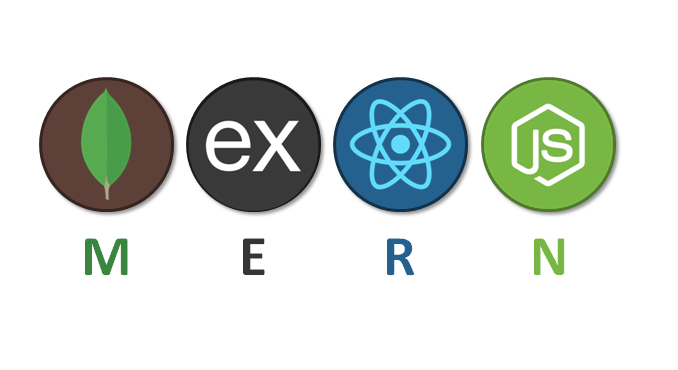
The MERN stack is a popular technology stack used for building full-stack web applications. MERN stands for MongoDB, Express.js, React, and Node.js. Each component of the stack serves a specific purpose in the development process:
- MongoDB: A NoSQL database that stores data in a flexible, JSON-like format called BSON (Binary JSON). MongoDB is known for its scalability, flexibility, and ease of use.
- Express.js: A web application framework for Node.js that simplifies the process of building robust, scalable, and maintainable web applications. It provides a set of features to facilitate server-side development.
- React: A JavaScript library for building user interfaces. React is maintained by Facebook and is widely used for creating interactive and dynamic user interfaces. It allows developers to build components that update efficiently in response to data changes.
- Node.js: A JavaScript runtime that allows developers to run JavaScript code on the server side. It is designed to be lightweight and efficient, making it well-suited for building scalable and high-performance web applications.
Why MERN Stack
- Full-Stack JavaScript: Using the MERN stack allows developers to use JavaScript for both front-end and back-end development. This provides consistency and simplifies the development process.
- Efficiency: The stack is designed to be efficient and productive, allowing developers to build modern, feature-rich applications with less effort.
- Single Language: Since JavaScript is used throughout the stack, developers can easily transition between different parts of the application without needing to learn multiple languages.
The MERN stack can be used to build a wide range of realistic and robust applications. Here are some examples of realistic applications that can be developed using the MERN stack
E-commerce Platform:
- Build an e-commerce website where users can browse products, add them to the cart, and make purchases. Implement features like user authentication, product search, and order management.
Social Media Platform:
- Create a social media application with user profiles, the ability to post updates, comment on posts, and connect with other users. Implement real-time updates using technologies like WebSocket.
Project Management Tool:
- Develop a project management application with features for creating tasks, assigning them to team members, tracking progress, and managing deadlines. Use real-time updates to enhance collaboration.
Online Learning Platform:
- Build a platform for online courses with features such as user authentication, course creation, video content delivery, quizzes, and progress tracking.
Job Portal:
- Create a job portal where employers can post job listings, and job seekers can create profiles, search for jobs, and apply. Implement features like resume uploading and job recommendation systems.
Blog Platform:
- Develop a blogging platform where users can create, edit, and publish blog posts. Implement features like categories, tags, and commenting.
Real-time Chat Application:
- Build a real-time chat application that allows users to create chat rooms, send messages, and share files. Use WebSocket or other real-time communication technologies.
Expense Tracker:
- Create an application for tracking personal or business expenses. Implement features for adding transactions, categorizing expenses, and generating reports.
Health and Fitness App:
- Build an app that helps users track their fitness activities, set goals, and monitor progress. Implement features like workout logging, goal setting, and progress charts.
Event Management System:
- Develop a platform for organizing and managing events. Users can create events, send invitations, and manage RSVPs. Include features like event scheduling, location mapping, and event analytics.
Agora , CERN MarketPlace , Walmart , Trello , Hulu (Certain Components) are examples of applications specifically built using the complete MERN stack (MongoDB, Express.js, React, and Node.js)








